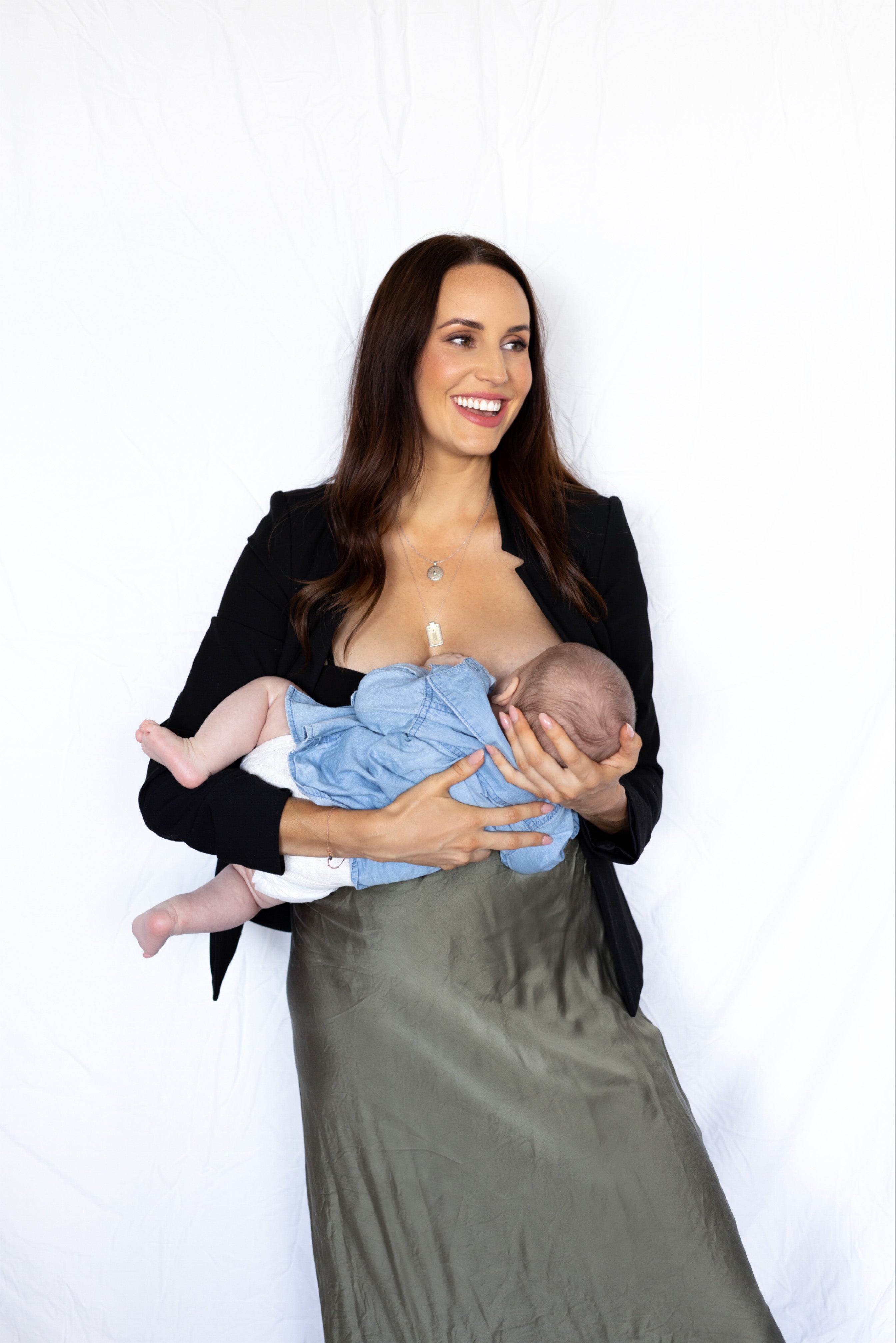As a new mother, it can be overwhelming to know what to do when your baby starts to teeth. You may also wonder how it will affect your breastfeeding journey. Fortunately, with the help of Susie Prout, midwife and International Board Certified Lactation Consultant (IBCLC), we've put together a guide to help you navigate this exciting but sometimes stressful milestone.

When Do Babies Start Teething?
Most babies start teething around 4-12 months, but the average age is six months. Some common signs that your baby is teething include drooling, fussiness, irritability, and gnawing or biting on objects. You may find these signs come and go and you may also notice changes in your baby's sleeping and feeding patterns.
Can a Baby Bite While Breastfeeding?
One of the most common worries among breastfeeding parents is the fear of their teething baby biting them while feeding. Teething does not automatically mean that babies will bite, however, it is something your baby may try at some point and is more likely to happen when they are teething.
It's important to understand that a baby physically can't bite the breast when they're feeding and latched correctly. As Susie explains, 'Babies naturally push their tongue down when they feed, which covers their bottom teeth and gums, preventing them from biting the breast. Therefore, teething typically does not impact the breastfeeding experience. However, if a baby does bite, it's a sign that they have slipped back or were not latched deeply on the breast. In such cases, parents should gently remove the baby from the breast and re-latch them properly to prevent any discomfort or potential injury.
Why Do Babies Bite While Breastfeeding?
Babies biting when breastfeeding can be a stressful experience for many mamas. To understand why your baby is biting, it's important to pay attention to when the bite occurs. This can help you to identify the reason for the biting and how to prevent it in the future.
According to Susie, there are a few different reasons why a baby may bite when breastfeeding. If your baby bites at the beginning of a feed, it may be because they are frustrated that the milk has not started flowing yet. To fix this, Susie recommends hand expressing until the letdown starts or is about to start. Then, put your baby on so their first mouthful will be met with milk. If your baby bites at the end of a feed, they may have finished feeding and are now playing or want to move to the other side. In this case, it's important to watch your baby closely and take them off before they start to play around or move to the other side.
If your baby is biting during the middle of a feed, this may be because their latch is not effective. Your baby may be latching on and off, resulting in a shallow, pulling suck. If this is the case, Susie suggests changing positions completely and going back to basics.
How should you respond when they bite?
Although it can be difficult, it's important to respond calmly. Quickly pulling your baby off the breast may startle them and cause them to bite down harder. Instead, try to gently break the suction and remove your baby from your breast. You can then offer them a teething toy or a chilled washcloth to gnaw on.
If your nipples are sore or grazed from your baby biting, Susie shares there are a few things you can do to help them heal.
- Keep them clean and dry
- Seek support at any signs of infection
- Silver nursing cups can be helpful as they have healing properties and protect your nipple rubbing in your bra
- Switch up nursing positions while they heal
Remember, it is safe to continue nursing when your baby has teeth, and with the help of Susie Prout's expert advice, you can navigate this milestone with confidence.
Be sure to check out Lactamo's other blogs for more helpful tips and information on breastfeeding.
Where can I find support and help with breastfeeding?
Lactation Consultants of Australia and New Zealand can help you find a lactation consultant near you.
Ask your GP, midwife, obstetrician, or healthcare provider to connect you with a lactation consultant locally.
The Australian Breastfeeding Association have many resources available including a 24-hour helpline for new mamas, face-to-face workshops, and online classes.
Click the links below to read more on the topics:






